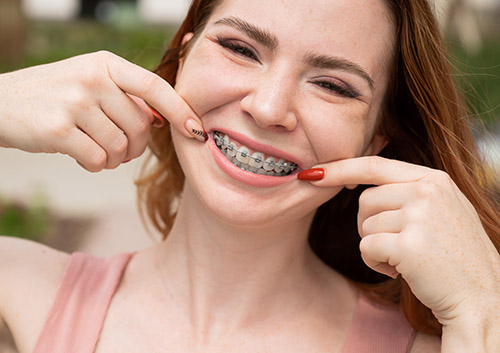AcceleDent®: A safe way to expedite your orthodontic treatment
November 8th, 2023

Millions of patients around the world are currently undergoing or have already completed orthodontic treatment. On average, traditional braces can take up to two years or more to straighten the teeth, a time that is filled with periodic orthodontic visits at Orthodontic Group Associates for Dr. Randall Welser and Dr. Lora Marine to monitor progress and tighten the braces. Though the outcome is always worth the duration of treatment, many patients would prefer to shed their braces faster than traditional treatment allows.
Shorter treatment times with AcceleDent
AcceleDent is changing the way orthodontic patients achieve a straighter smile. This revolutionary technology makes it possible to shorten treatment time by up to 50 percent, compared to traditional braces without AcceleDent. Since 2009, thousands of people around the world have benefited from the AcceleDent rapid-correction technology, and the numbers are growing day by day!
AcceleDent is a daily-use device that includes a fitted mouthpiece and an activator. This activator delivers gentle, pain-free pulses that encourage your teeth to move more quickly in the direction of your orthodontic device. When used for 20 minutes each day as prescribed by our office, AcceleDent can cut a two-year treatment in half!
Of course, any daily commitment requires convenience and portability. AcceleDent was designed for versatility, with a lightweight, compact design and a convenient storage case. The device easily charges via its USB port, which also doubles as a computer connection to track your history of use.
Is AcceleDent right for you?
You may be a candidate for AcceleDent if you are undergoing or preparing to undergo orthodontic treatment and are interested in a shorter treatment time. AcceleDent is available by prescription only, so you must consult with our Moline or Geneseo, IL or Clinton, IA office if you think this technology could be right for you.



